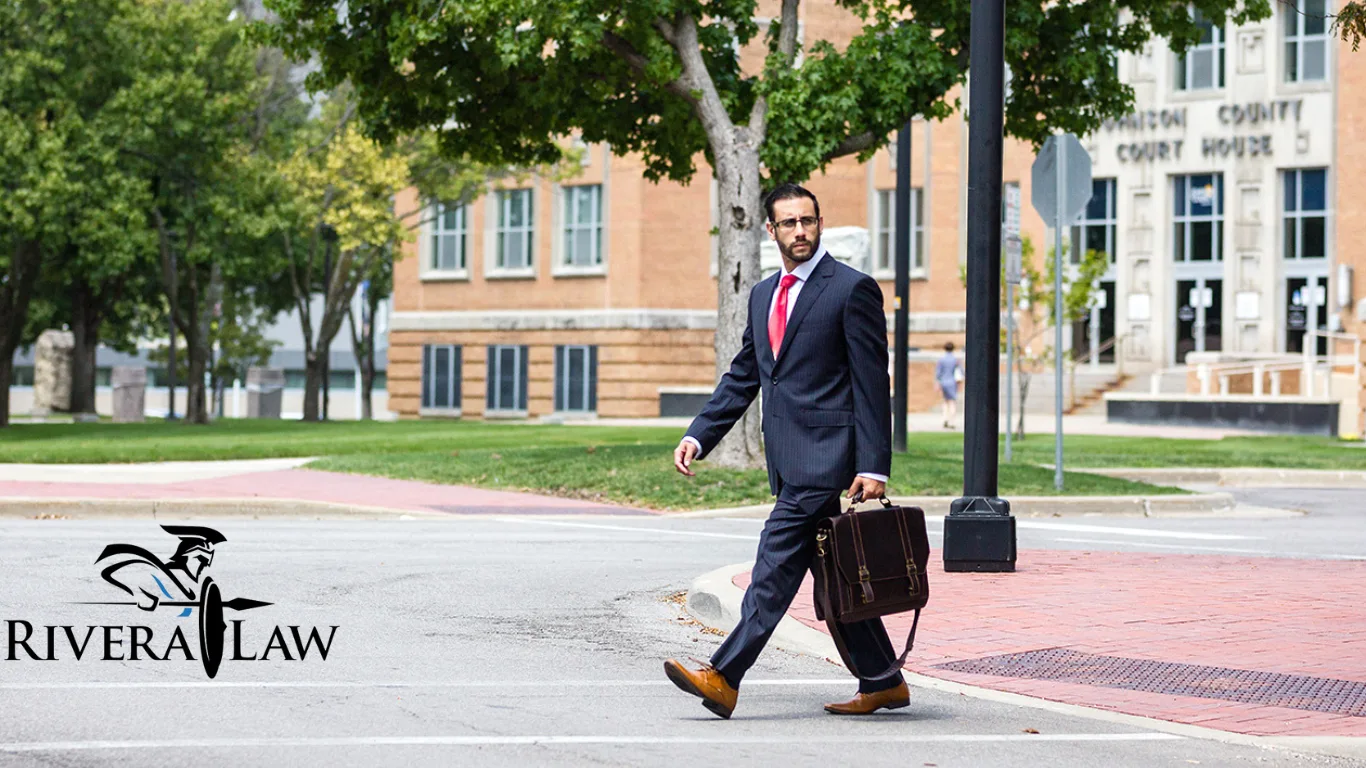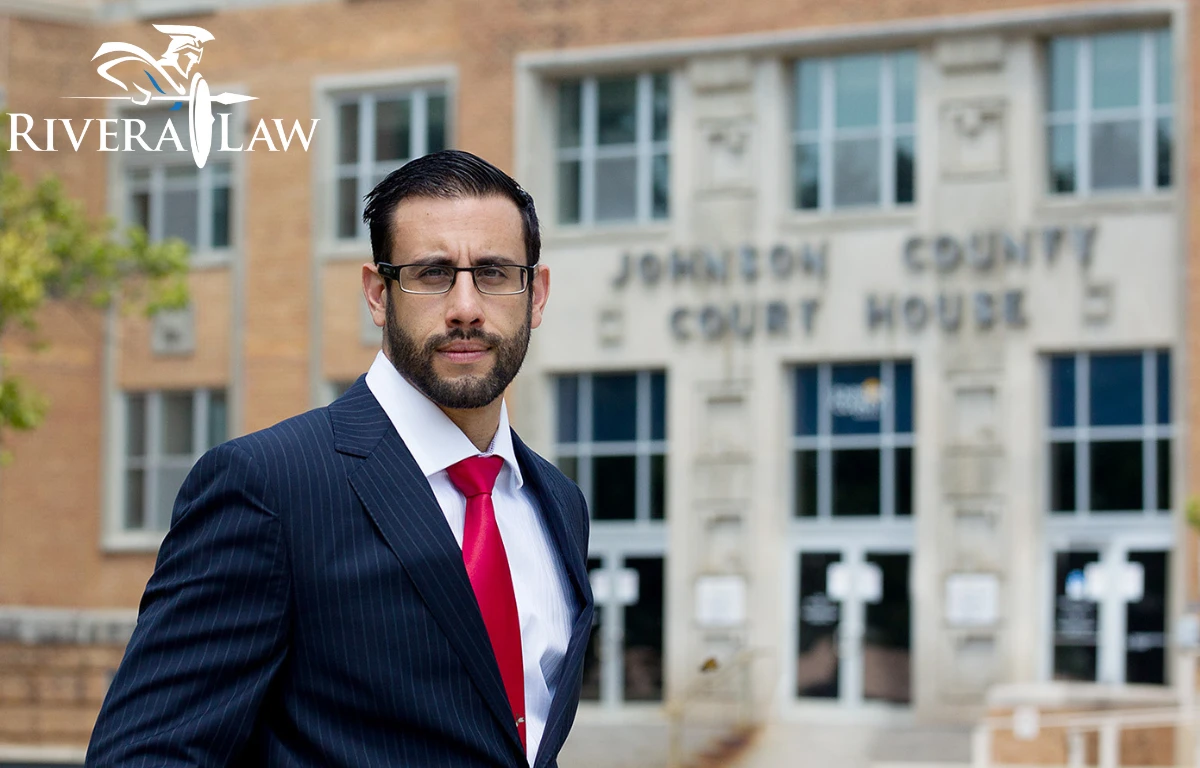
Defending Against Domestic Battery Cases: Protecting Your Rights and Freedom
Attorney Vincent RiveraDomestic battery charges are a serious offense, and having a reputable attorney by your side is critical for ensuring that you have all of the legal support and guidance that you will need. At Rivera Law, LLC, attorneys have decades of experience in helping individuals facing domestic battery charges, and will go above and beyond to help protect your rights and your future.
Although we have helped many individuals facing a similar struggle to you, our attorneys understand that each case is unique, and needs the appropriate attention and evaluation. Don't go through domestic violence charges on your own. Let domestic battery lawyer Vincent Rivera help protect your rights and secure your future.
Call our Rivera Law today at (913) 210-0844 to schedule a free consultation.
Jump to Section
quickly navigate to specific sections
Domestic Battery Criminal Charges
Domestic battery is defined extremely broad, it includes any contact done in a "rude, angry or insulting" manner. It doesn't matter whether someone is hurt, all that matters is whether the contact was committed in a "rude, angry or insulting" manner. For example: Splashing a household member with water or throwing a toilet paper roll at them could be considered domestic battery in the eyes of the law. Another example: Forging a check in your ex’s name to gain access to their finances is a form of domestic violence.
A domestic battery offense is any crime committed against a family, household member, significant other or ex.
Family or Household Member is defined by law as persons 18 years of age or older who are:
- Spouses and former spouses
- Parents or stepparents
- Children or stepchildren or
- Persons who are presently residing together or who have resided together in the past
- Persons who have a child in common regardless of whether they have been married or who have lived together at any time
- Persons who have a child in common regardless of whether they have been married or who have lived together at any time
- Dating relationship defined by law is a social relationship of a romantic nature.
Factors that decide if a dating relationship exist can include:
- nature of the relationship;
- length of time the relationship existed;
- frequency of interaction between the parties; and,
- amount of time since termination of the relationship, if applicable.
Schedule your initial consultation by calling the domestic violence lawyers at (913) 210-0844 today.
Domestic Battery Defenses
Since domestic battery is defined so broadly, with complete disregard for whether any harm was actually caused, we’re left with 3 defenses.
These Include:
- Self-defense
Essentially, “they were attacking me” or “they were about to attack me” and “I used a reasonable amount of force to prevent/stop the attack.” Keep in mind the level of force must be “reasonable.”
- Not “criminal” contact
The argument is that “yes, physical contact was made, but it was not intended as ‘rude, angry, or insulting.” Or perhaps the contact was accidental.
- No contact was made
We’re arguing that no contact was made, and the “victim” is lying.
Penalties for Domestic Battery
Domestic Battery as a Felony
Domestic battery is a misdemeanor if it’s a first offense, or second offense within the last 5 years.
Domestic Battery Is A Felony If:
- it’s the third offense within 5-years, or
- involved strangulation, or
- resulted in substantial injuries.
First Offense of Domestic Battery
For a first offense of domestic battery, the court may impose a sentence of:
- 48 hours (minimum) to 6 months (maximum) in jail. A fine of $200 -$500. (a combination of jail and probation is possible); or
- In lieu of the mandatory 48 hours and fine, sentence the offender to probation with “Batterers Intervention Program.”
Second Offense of Domestic Battery
For a second offense of domestic battery, the court may impose a sentence of:
- 3 – 12 months in jail or as a “backup sentence”; and/or
- Mandatory 5- days in jail followed by probation. Which can be served as 2 days in jail followed by 3 days of work release.
Third Offense of Domestic Battery
For a third offense of domestic battery (felony), the court may impose a sentence of:
- 3 – 12 months in jail or as a “backup sentence”; and/or
- Mandatory 90-days in jail followed by probation. This 90-days can be served as 2 days in jail followed by 88-days of work release.
Strangulation Domestic Battery
For a "strangulation domestic battery", the court can impose a sentence of:
- 11 – 34 months in prison or as a “backup sentence” (depending on criminal history)
- If given probation, up to 60 days of jail time.
How a Domestic Battery Attorney Can Help You
Providing objective legal advice
Vincent Rivera will provide you with valuable legal advice to help ensure that your rights are protected. He will explain the charges against you and the potential consequences, and will advise you on the best course of action to take.
This objective legal advice is crucial in understanding the charges and building a defense strategy.
Vincent Rivera, domestic violence attorney will be able to explain the different types of charges and penalties you may be facing, and explain how the legal process works. He will also be able to advise you on any plea bargains or settlements that may be offered, and help you understand the potential risks and benefits of each option.
Additionally, Vincent will be able to answer any questions you may have and provide guidance on how to navigate the legal system.

Supporting you
Vincent Rivera will be there to guide you at every step and will be able to help prevent you from making mistakes that could have a negative impact on your future or reputation.
Having a domestic violence attorney by your side can provide emotional support and reassurance during a difficult and stressful time. Vincent will be able to provide you with a sense of security and can help alleviate any fears or concerns you may have about the legal process. He will be able to explain the possible outcomes of your case, and help you understand the implications of any decisions you make.
Additionally, he can also help you navigate the practical aspects of your case, such as filling out paperwork, making court appearances, and communicating with law enforcement officials. He will also be able to provide guidance on how to handle any negative publicity that may arise as a result of your case.
Having a experienced criminal defense attorney can also help prevent you from making mistakes that could have long-term consequences. For example, speaking to the police or making statements without an attorney present could be detrimental to your case. Vincent will be able to advise you on how to handle these situations and protect your rights.
Examining your charges
Vincent will investigate your charges and advise you on the best next steps to take. He will review the evidence against you and determine if there are any weaknesses in the prosecution's case that can be exploited. This process is known as case evaluation. As an experienced domestic violence attorney Vincent has the knowledge and understanding of the law and will be able to evaluate the evidence in your case to determine if the prosecution has a strong case or if there are any potential legal defenses that can be used in your case.
For example, he may find that the prosecution's case is based on unreliable or circumstantial evidence, or that the prosecution has failed to prove an element of the crime. In such cases, he can use this information to negotiate a plea bargain or to develop a strategy for your defense.
Furthermore, Vincent will also be able to advise you on the potential outcome of your case, whether it's a plea bargain, settlement, or a trial. He will also be able to explain the pros and cons of each option, and help you understand the potential risks and benefits of each outcome.
Having an expert domestic violence attorney with experience in these types of cases, who can thoroughly evaluate the charges and evidence against you, is essential for a successful outcome.
Collecting evidence
Vincent will be responsible for collecting the necessary evidence to support your case. He will interview witnesses, gather documents, and conduct other investigations to build a strong defense. This is an important step in the legal process as the evidence collected will be used to support your defense and to challenge the prosecution's evidence.
For example, if Vincent finds that the prosecution's case relies heavily on witness testimony, they may interview the witnesses to find inconsistencies or contradictions in their statements. Or, if the prosecution's case relies on physical evidence, he may conduct their own examination of the evidence to find any flaws or inaccuracies.
Vincent will also be able to use evidence collected to negotiate a plea bargain or settlement with the prosecution. For example, if there is a lack of evidence, the prosecution may be more willing to negotiate a plea bargain or to drop the charges.
Aa an experienced criminal defense attorney Vincent will also be able to use evidence to support an alibi defense, self-defense, or other legal defenses that may apply to your case.
Collecting evidence is a crucial part of building a strong defense, and a domestic violence attorney with experience in these types of cases will be able to identify and collect the necessary evidence to support your defense.
Representing you
If your case gets taken to court, Vincent will be there to represent you. Vincent Rivera is your best advocate, and he has the skills and experience necessary to help you reach a favorable settlement. Representing you in court means that he will present your defense, cross-examine witnesses, and argue for a favorable outcome.
As an experienced domestic violence attorney Vincent will be able to present your case in the most favorable light possible, highlighting the strengths of your defense and mitigating the impact of any weaknesses. He will also be able to anticipate and counter the prosecution's arguments and evidence.
During the trial, Vincent will make opening and closing statements, cross-examine prosecution witnesses, and call witnesses on your behalf. He will also be able to object to any evidence that is not admissible in court and make motions to the judge.
In the event that a trial is unavoidable, Vincent will be able to use his knowledge of the law and trial skills to present a persuasive and effective defense, which will help to increase your chances of a favorable outcome.
It's important to note that even if the case goes to trial, Vincent may still be able to negotiate a plea bargain or settlement before the trial or during the trial if the circumstances change. Having an attorney who can represent you in court and also negotiate with the prosecution will give you the best chance of a positive outcome.

